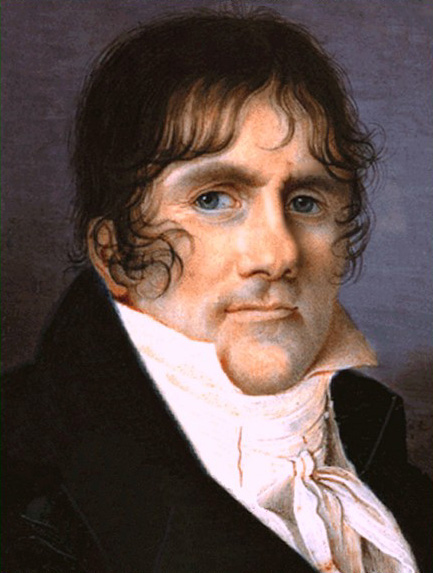The Directory (1795-1799)

A portrait of Paul de Barrass. (Public Domain photo. Info can be found here)
After the years of executions and riots, the people of France were tired of the chaos. Luckily, the country had started an era of peace between the fact that most of the radicals had been executed from both sides and the coalitions against the French had ended. The economy, on the other hand, was still in shambles and the country was trying to find ways to fix it quickly. Part of the economic problems was that the troops were returning home from the war and finding no jobs. This increased the number of starving people and added to the issues.
The Constitution of 1795 created a new government that was largely based on the U.S. as a model. It included the first bicameral legislature in French history with a council of 500 (similar to the US House Of Representatives) and the Council of Ancients (similar to the US Senate) and would stagger the voting so that they didn’t lose too many people at once. Anyone who owned property was allowed to vote, a policy that replaced the universal male suffrage system they had used in 1793. This new constitution granted a number of freedoms that were unusual for the time, including the freedom of religion, freedom of the press, and freedom of labor. It wasn’t quite as positive as it is often portrayed though, since it didn’t allow public meetings or political societies for fear of what they had done before.
The executive branch of this new government was known as the directory, which was a group of 5 people who would basically run the government. They were voted into power by the legislatures and were there in case a quick decision was needed in a time of crisis. While they weren’t allowed to make laws or change taxation due to separation of powers, they would hold a great deal of power over the legislatures, and would use it often. Unfortunately the directors were well-known for being quite corrupt, and would often simply
do things for those who helped them. This group would start to use the military to gain amazing power, quickly limiting freedom that had been granted in the constitution. The directors chose one of their own (Paul de Barras) to make the military decisions for the group, which was unfortunate because he was the most corrupt of the group. His power within the Directory would help Napoleon gain power also, since he was good friends with Barras.
The directors were ironically supposed to be the group that kept corruption out of politics, but the directors themselves were the most corrupt people in the country. A few of the directors would eventually try to claim that royalists were trying to overthrow the government, noting that they needed to receive more power to deal with the plot. They used this lie to try to take more power than they already had in what has become known as the Coup d’état of 18 Fructidor (1797). The group would ask for Napoleon to give military support in this take over because they thought they could control him. The group would cancel 49 departments within the government and would arrest the people who worked in them.
This takeover would give the directory dictator-like power, and with the addition of 2 new members, would bring the Jacobins back to power in France again. They would immediately take away much of the freedom of the press that was left, even deporting journalists who they disliked. While Barras and his allies were in control of the government, they were highly dependant on Napoleon’s control of the military to keep them in power. This would soon become a major mistake since Napoleon knew his Roman history well.
The government was worried about the amount of power that Napoleon was gaining so they chose to send the military to Egypt to get him away from the power base. They hoped that if he was removed from Paris, it would decrease his power over time.
